Siri Lawson stands on a dirt road near Farmington Township, PA
The story of Siri and Wayne Lawson starts long before they called Fair Shake’s offices in the summer of 2017. It illustrates the extreme measures that normal residents must take to get the justice that they deserve. Most American’s would struggle having to face a situation where they were forced to move away from their dream home because of the careless acts carried out by the oil and gas industry; however, this was the Lawsons’ misfortune on three separate occasions. When they called Fair Shake, they were looking at their fourth.
Their “nightmare” began in the early 1980’s. Siri and Wayne had just moved into a home in Warren, PA, which they fondly referred to as “the Castle”. What they didn’t know was that a bankrupt refinery began using its tank farm, which sat several hundred feet below their house, to dispose of their hazardous wastes. Siri explained “The air airborne contamination was so significant that in the 1983 I was hospitalized with cardiopulmonary failure due to status asthmaticus. Trips to the hospital became the norm for us. To this day, I require the care of multiple specialists in Pittsburgh, PA to manage my lung damage, the destruction of her sinus’s, her endocrine disruption with its nasty side effect, acute adrenal suppression.”
Abandoned conventional gas well in Warren County, PA.
The Lawsons and their neighbors sued the refinery, hoping to get some justice for the physical and mental distress the refinery had caused them, but the legal action fell far short of their expectations. Even though the Lawsons had documented provable injuries and damage the judge forced the lawyers to go to trial. The court ultimately found that while the refinery was guilty of dumping the waste, they did not find any reason to award the Lawsons compensation for damages. To escape ongoing environmental pollution from the refinery, the Lawsons moved to New York State, on their own dime.
In 1997, the Lawsons were notified that an out-of-state drilling company intended to open a conventional gas field surrounding their home. There were projected to be hundreds of conventional gas wells drilled. The airborne drill cuttings, which have been known to contain naturally occurring radioactive materials (NORMs), exacerbated the injuries the Lawsons received during the refinery years. They felt strongly that exploration companies should exercise responsible care in the known presence of heart or lung patients. They retained a series of lawyers, hoping one would eventually be able to negotiate with the drillers and allow Siri and Wayne to remain in their home. They had little success. Overwhelmed and giving into what they saw as the inevitable, Siri and Wayne moved again.
This time they moved as far away from anyone as they could afford to. They thoroughly vetted a remote location: Pittsfield, PA. They were assured by professionals that the area was “dry,” meaning that the chance of future oil or gas exploration here was very unlikely. Wayne passionately told me “in Pittsfield I’m at the center of 5000 acres of timber. I’ve got 40 acres…it’s a beautiful place for two people who just want to be away from things.”
Two years after moving here, they were notified by the DEP the one of Pennsylvania’s largest shale drillers would be placing a Marcellus Shale “test” well less than a mile from their new home. Then the “test” failed, leaching chemicals and methane into their water wells, fields, springs, and ponds which would bubble up as evidenced by photos. The situation became so perilous that the DEP warned them not to light an open fire on their property. So, for the third time, Siri and Wayne turned to a lawyer.
The Lawsons didn’t ask for much. They just wanted to have the situation remedied either through remediation or a buyout of their property, which was not safe for Siri to stay at anymore. Siri told me things went south when their lawyer requested an enormous sum of money (Tens of thousands of dollars according to Siri) in the eventuality that there was to be a trial. He then requested an equal sum of money for the certainty there would be a slap suit. While they were processing this huge financial burden, a permit was filed for a second shale well. So, they decided to bite the bullet once again and move, on their own dime because that was cheaper than defending their rights.
Today Siri and Wayne live in Farmington Township, Pennsylvania in a home off the beaten path, where there are more dirt roads than paved ones. But they still haven’t found peace and quiet. Two years after the move Siri was at the kitchen sink looking down the road “and here comes a vac truck… He[was] dumping something on the road” she recounted. “So, I immediately called [Wayne] and said something’s happening.’ Well, we learned this is called brine spreading and it started happening every day. Then twice nightly at 2:00 and 4:00 in the morning.”
“Brine” is a broad term referring to the salty waters flowing in and out of conventional and unconventional (fracking) oil and gas wells. It is a combination of the injected fracturing fluid and chemicals and the flowback of ancient seawater and the fractured shale rock. It is technically referred to as “oil and gas wastewater” or “produced water” which gives a nod to the man-made chemicals injected during fracking and production process. Brine can contain high levels of sodium, chlorides, bromides, and naturally occurring radioactive materials such as Radium 226 and 228 and Radon, among other NORMs and toxins. Despite all that, in 2011 a number of townships in Pennsylvania obtained permission from the Department of Environmental Protection, DEP, to freely spread brine water along unpaved roads throughout her neighborhood for dust suppression.
Even today much is still unknown about brine road spreading. The PA DEP cited its use for dust-control and road stabilization as “beneficial” reasons for this liquid disposal. In Siri’s case, the physical reaction to brine spreading proved to be disastrous and extremely dangerous. Siri has suffered swelling of her eyes, ears, tongue, irritation in her sinuses, as well as burning of her skin. Wayne was impacted too. Tragically, a year after the brine spreading began, he suffered back to back heart attacks, which he is still recovering from. While being stented, the cardiologist told him his condition was associated with pollution exposure. According to Siri as well as her neighbors, in some cases brine was being spread on roads so heavily that it would stream directly into local streams, ditches, and ponds. The same streams and ponds that local Amish children would play in.
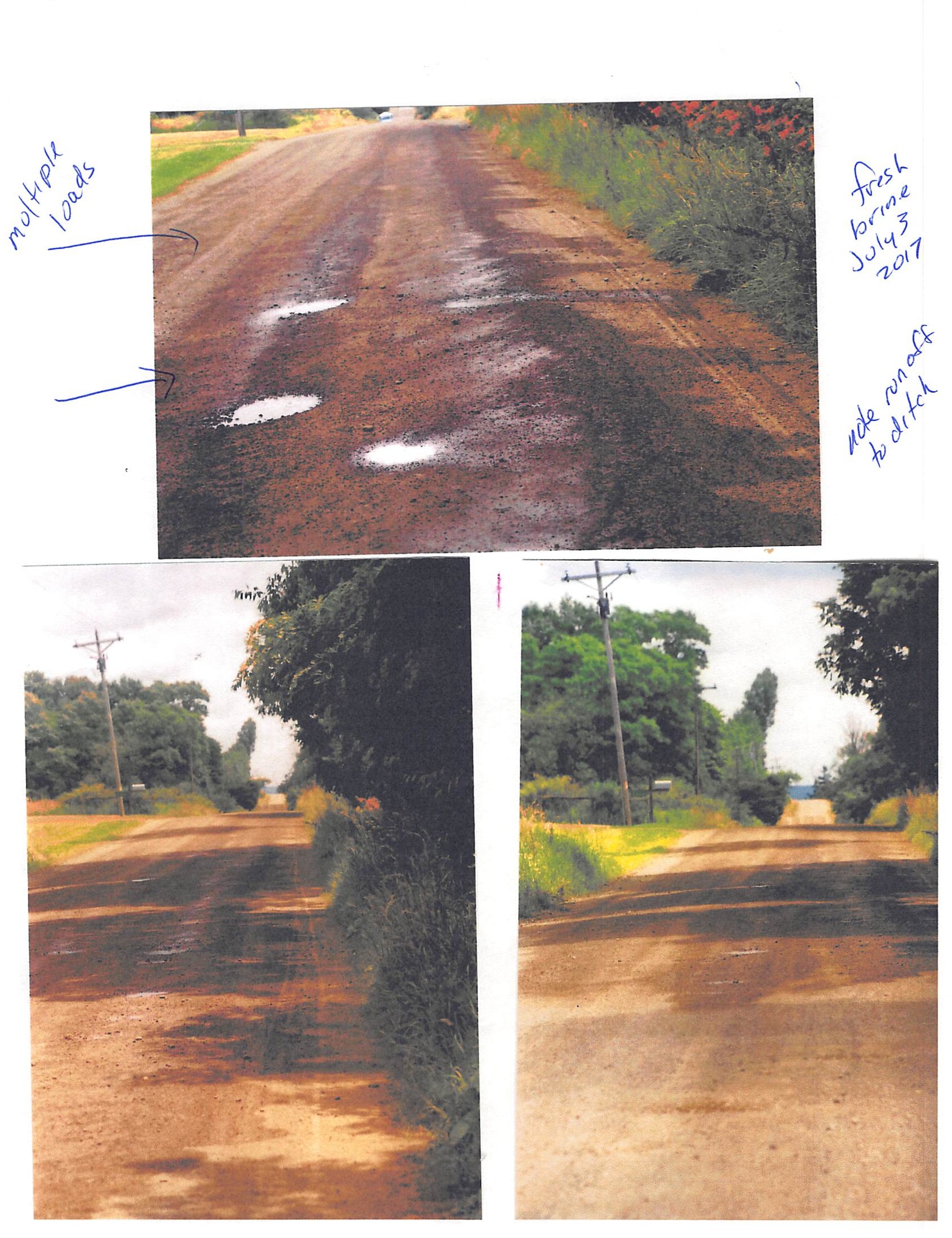

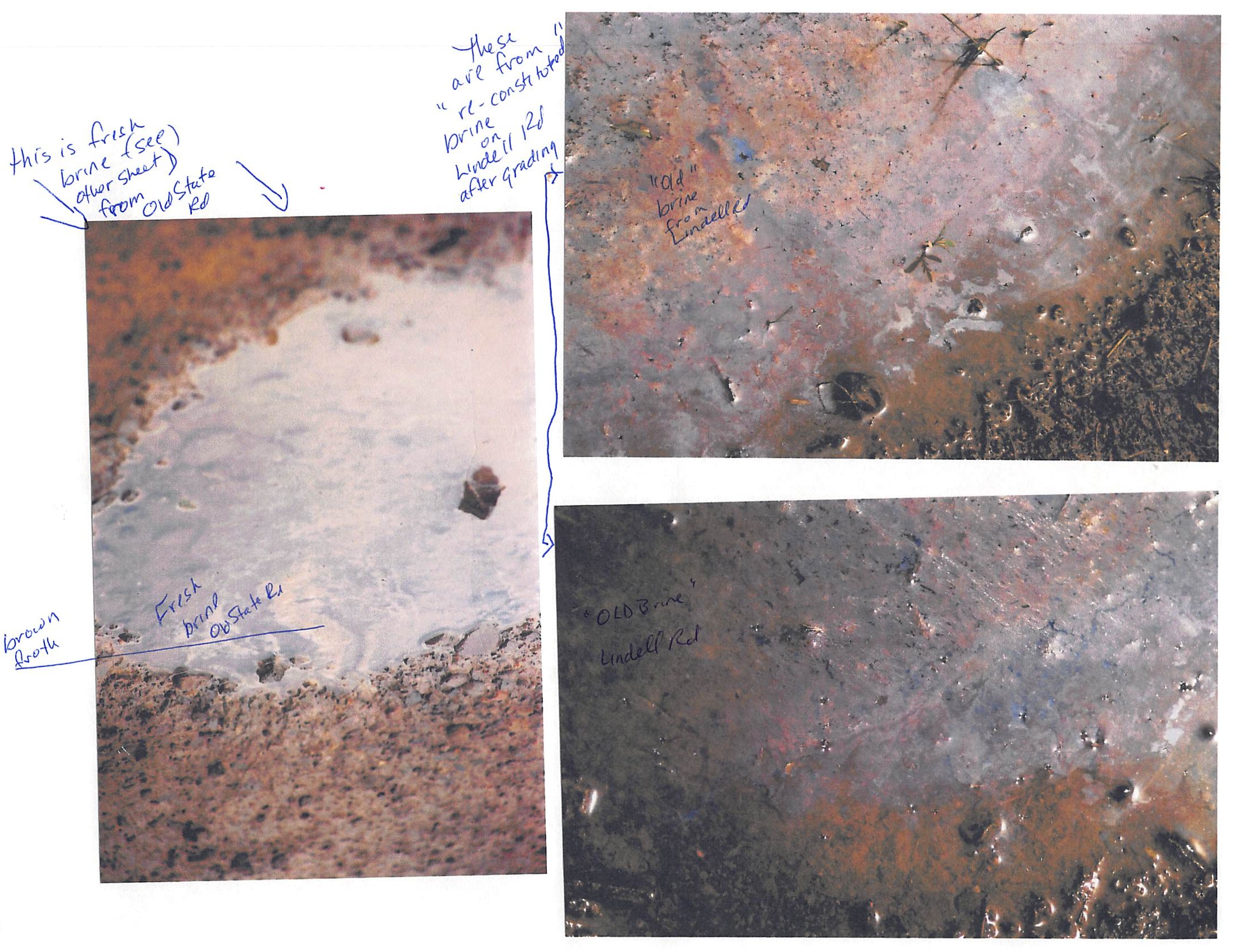
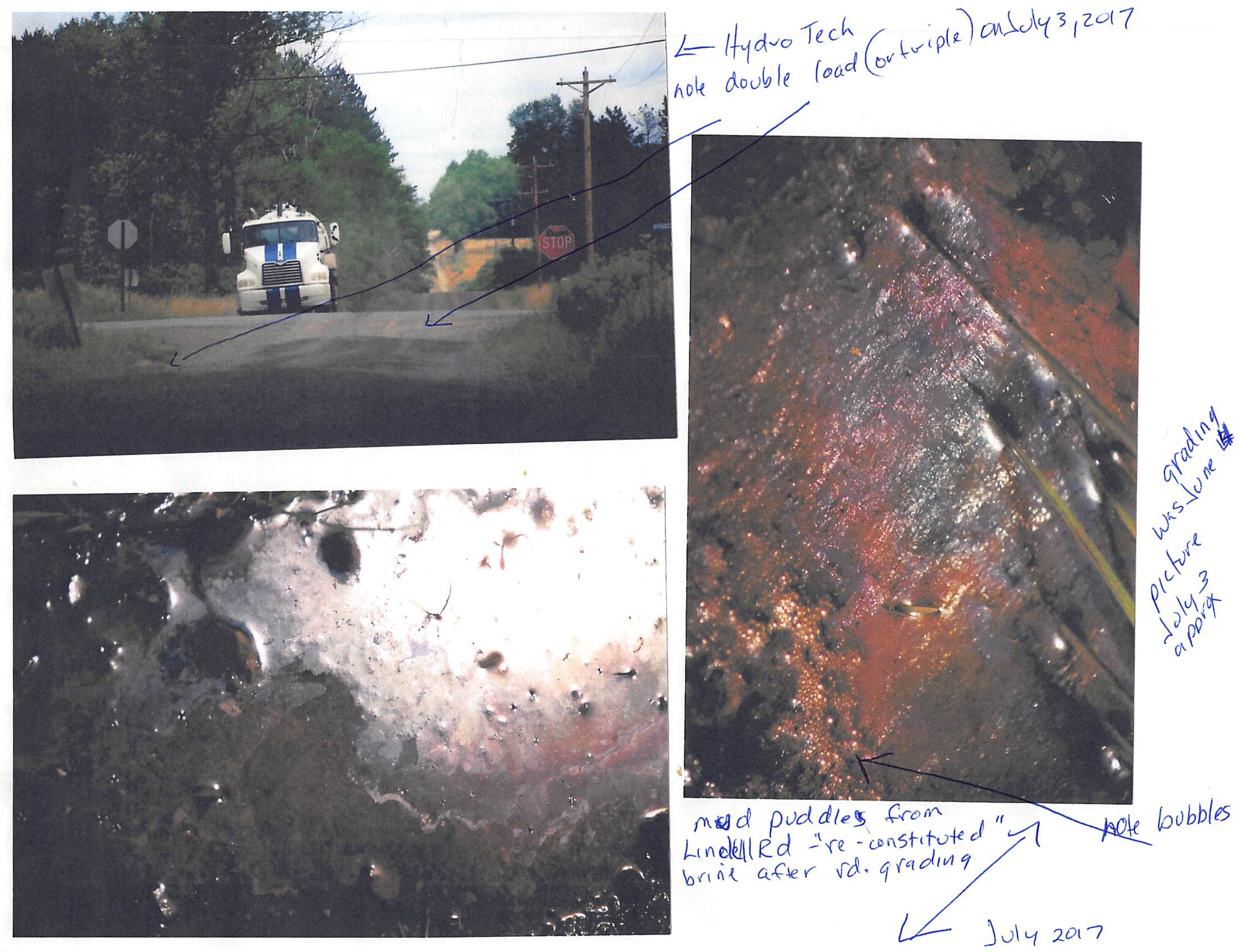
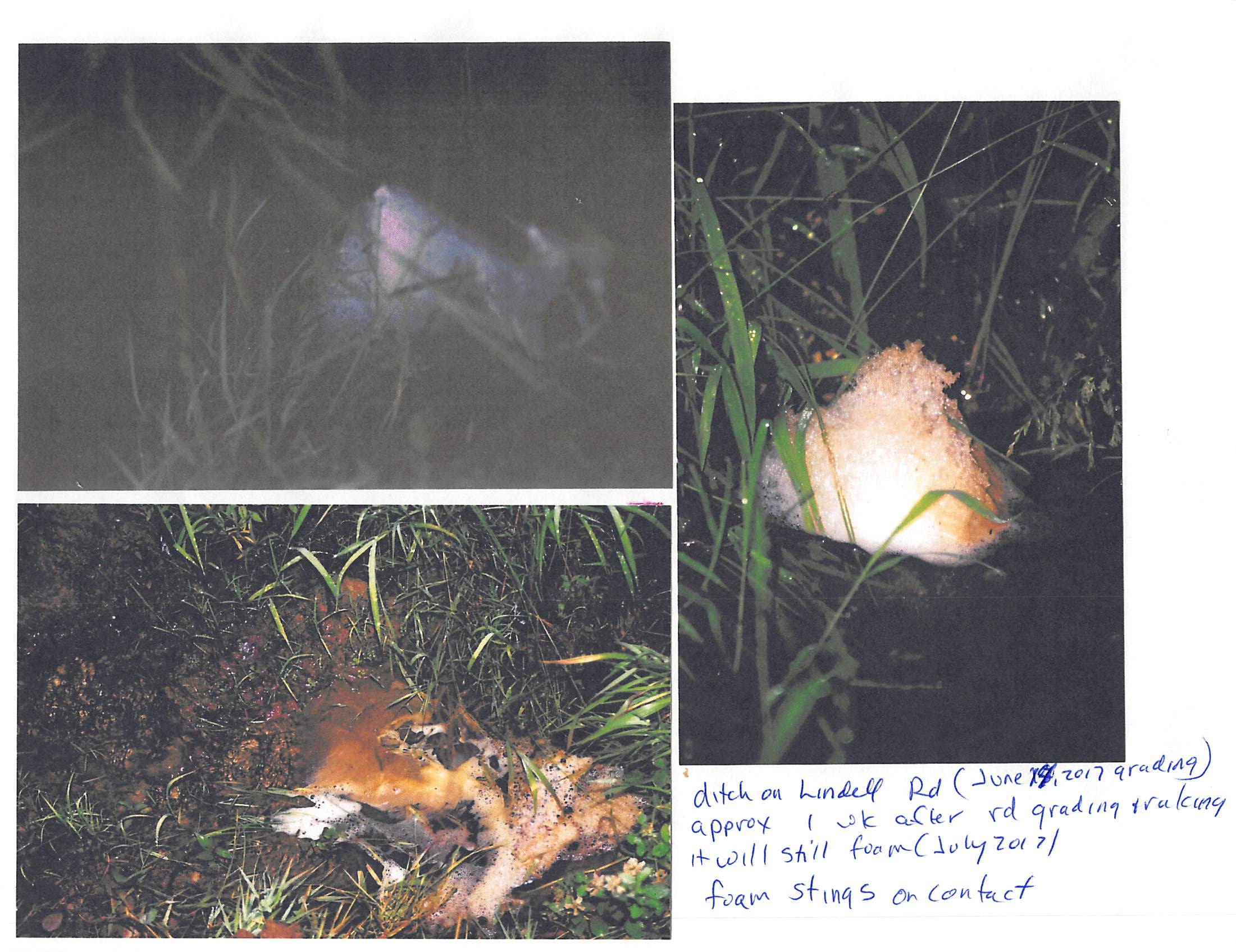
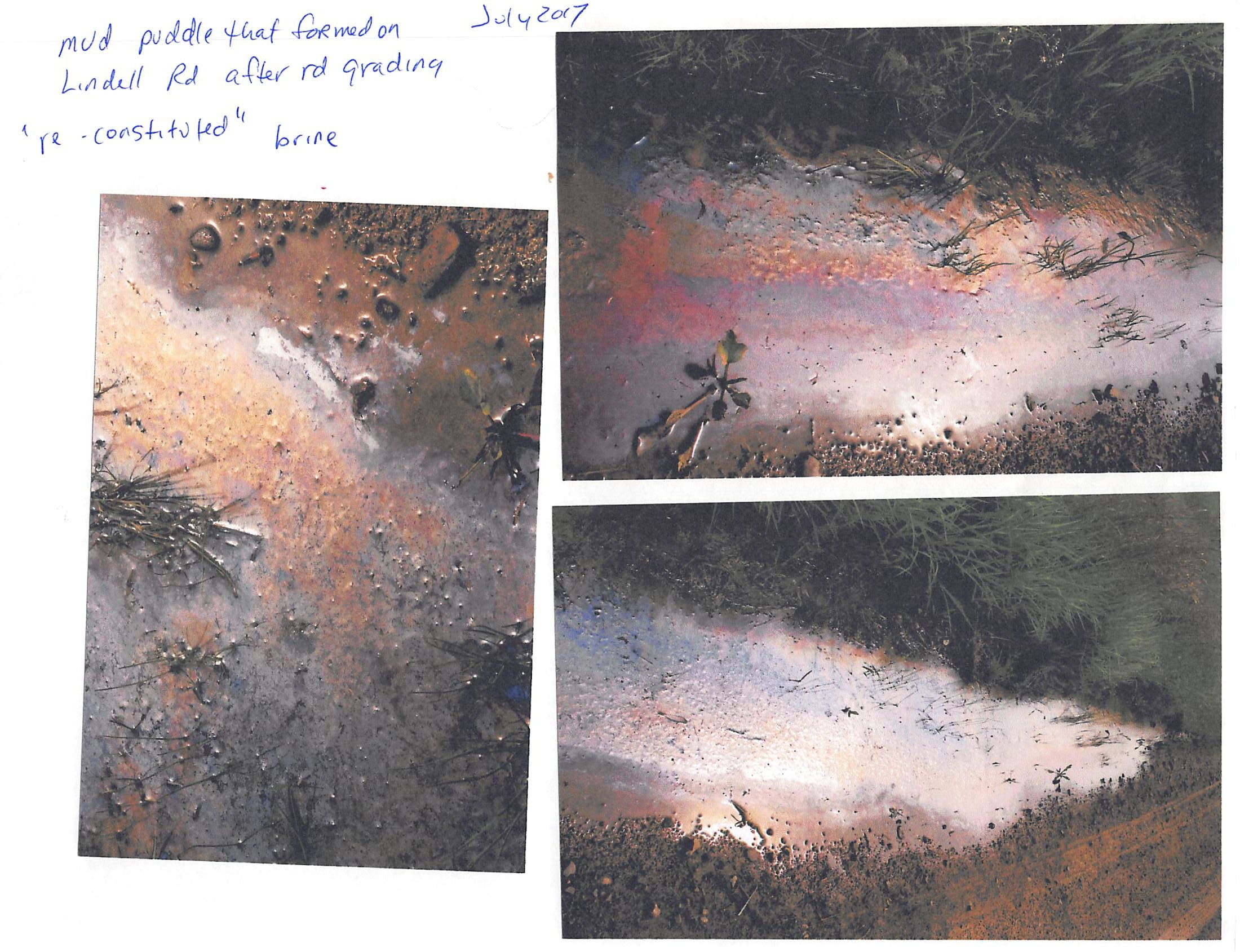
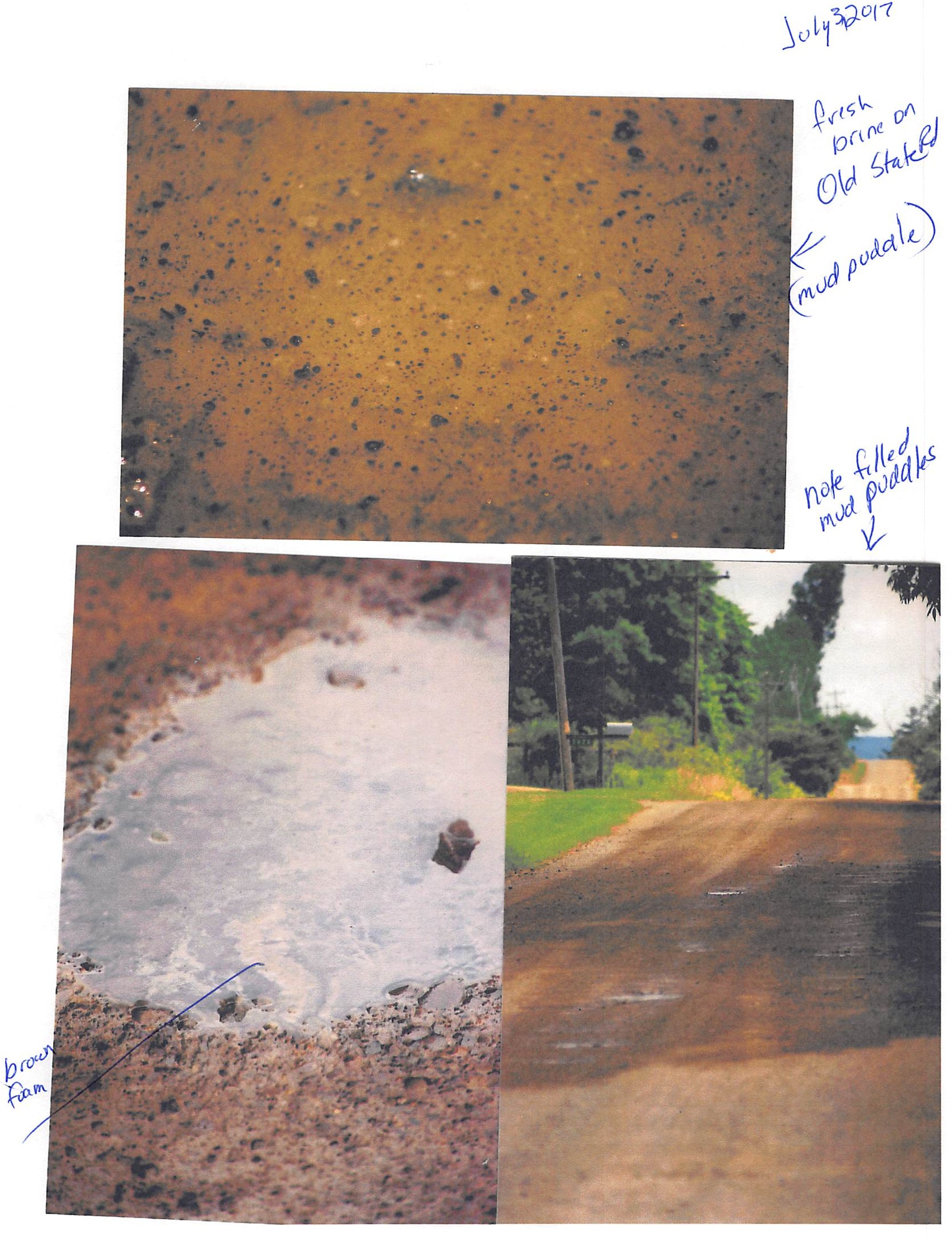
Photos taken by Siri Lawson (2015-2017)
To take on the legal fight against an industry that has harmed someone, finding an attorney who can put in the necessary hours at an affordable price can be daunting. Siri and Wayne felt compelled to take action to protect themselves and their neighbors but after three discouraging fights with oil and gas operators, they had lost hope in the judicial system. Their rights and those of their neighbors could and should be defended, but at what cost?
Siri tried self-defense, such as gathering signatures and going to the township, but pleas and petitions with dozens of community members’ signatures had fallen on deaf ears. Then Siri phoned Attorney Jordan Yeager, a friend and former board member of Fair Shake, who listened to her problem and saw a clear need to connect Siri to our attorneys.
Our nonprofit law firm is one of, if not the only firm, that could offer the Lawsons pro bono representation to defend their environmental rights. So, in June of 2017 Siri began working with Fair Shake resident attorney Rose Monahan and together they began the process of challenging a single authorization for brine roadspreading, changing the bleak landscape for Siri’s fight against her township and the DEP.
In an initial letter to the township, Fair Shake requested the township cease and desist from spreading brine on township roads. Rose pointed out brine road spreading was contrary to the township’s legal obligations under Article 1, Section 27 of the Pennsylvania Constitution, the Pennsylvania Clean Streams Law, the Federal Clean Water Act and common law due to its negative impacts to environmental and human health. Siri told me that hearing her environmental rights “was like poetry to me.”
Then in July of 2017 they submit an appeal to the Environmental Hearing Board (EHB) against the DEP and Farmington Township’s primary residual waste hauler, Hydro Transport. The appeal challenged DEP’s authority to allow brine road spreading activities and argued that the lack of such authority should result in the invalidation of Hydro Transports’ approval plan, which functioned as its permit to spread brine.
In addition to our strong legal arguments, we brought on experts to testify on the impact of brine on local waterways and groundwater, air, and even the roadways themselves. Paul Rubin, a Hydrogeologist from New York, was hired as an expert for litigation. He was on record for years warning that water from brine road spreading will migrate off of roads and into streams. Using records submitted to the DEP by the residual waste haulers themselves he formed a report showing undeniable evidence that Hydro Transport was dumping water with significant particulate matter, which we argued constituted unauthorized disposal of a “waste” under Pennsylvania’s Solid Waste Management Act. We also hired an air expert and his report determined that the liquid component in brine evaporates leaving behind additional particulates which ironically end up being kicked up with the surrounding dust, further irritating respiratory tracts, and have also been said to further destabilize unpaved roads.
Just before these reports could be submitted to the court, the DEP did something no one expected: they agreed with us. They issued a state-wide moratorium on brine road spreading and filed a motion to dismiss the case (also viewable below, pg. 8 second paragraph), which admitted they lacked authority to issue approval plans.
In August of 2017 Hydro Transport’s approval lapsed and so the EHB judges dismissed the case as the issue was moot, saying the case and its legal arguments were highly unusual yet the plaintiff had essentially gotten what she wanted (the statewide ban).
With the successful challenge of a single hauler’s plan approval, the Lawsons’ case had effectively been responsible for Pennsylvania shutting down road spreading for lack of authority under its own environmental laws to approve it. More importantly, Siri and Wayne could finally get the much need relief that the brining would stop. Finally, the Lawsons have been able to enjoy the peace and comfort of their home.
So that we can continue providing justice
for people and the environment.
The Story Isn’t Over
Today these wins are in jeopardy. Currently there are two bills (HB 1635 & SB 790) circulating through Pennsylvania Senate, proposing a plan for the “beneficial” spread of “produced water,” which is actually oil and gas wastewater. While a legal method for the proper disposal and potential reuse of frack wastewater and brine may be in the works, our work with the Lawsons has opened a window into the need for the scientific assessment of the impacts of that wastewater on human health and environment as well as the need for government to establish “best management practices” for the use and application of such wastewater. In short, corporate convenience should never dwarf the environmental needs of a community and its people.
YOU CAN…
Find out more about these bills and why they are so dangerous here.
Contact your local congress about these bills
Contribute to Fair Shake to continue our work defending the rights of residents and communities at the frontlines of these environmental risks.
ADDITIONAL RESOURCES:
PA Fracking Waste Map
Earthworks and FracTracker Alliance (Pittsburgh, PA) created the interactive Pennsylvania Oil & Gas Waste Map using PA DEP (Department of Environmental Protection) data to allow users to search and see how much oil and gas waste has been processed, transported and disposed near them from 2011-2018.














